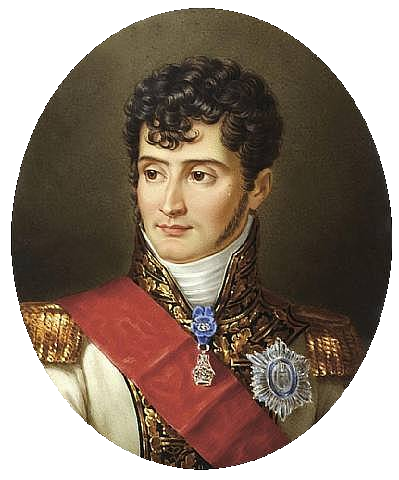This is the fifth and final of my excerpts from my forthcoming novel The Ambitious Madame Bonaparte. After their marriage, Betsy and Jerome made several attempts to sail to France to obtain Napoleon’s approval of their impulsive marriage. This scene occurs shortly after they and Betsy’s aunt, Nancy Spear, board an American merchant ship bound for Spain:
Toward evening, clouds massed over the land to the west, gusts of westerly wind blew with increasing force, and the temperature dropped. Betsy saw heightened activity among the crew as they worked to keep control of the ship, which was listing to port. As rain began to fall, Jerome hurried her below to their cabin.
For hours, the gale lashed the ship, causing it to buck and roll. Betsy lay in the bunk, clinging to its railing to keep from being tossed about. Jerome sat beside her in the cabin’s single chair. Betsy’s stomach heaved along with the sea, and she vomited several times into the washbasin, which Jerome had moved onto the bed beside her. He did not get sick, in spite of being shut up with a retching wife, but he looked pale and agitated. Finally, after an hour, he said, “Elisa, do you feel well enough for me to leave you for a short while? I feel uneasy about Miss Spear.”
Betsy felt guilty that, in her distress, she had not thought of her aunt. “Yes, please go inquire how she is.” A wave of nausea rolled over her again, and she pressed her fist against her mouth. Her diaphragm ached from the constant heaving.
Jerome made his way out of the cabin, touching the wall as he went to keep his balance. He was gone for several minutes. When he returned, he said, “Ta pauvre tante. Elle est plus malade que toi.”
“Oh, dear,” Betsy said. If Aunt Nancy was worse than this, she must feel as though she were at death’s door. Betsy tried to push herself to a sitting position so she could go to the older woman, but the ship abruptly rose and then descended with a sickening plunge. She lay back down. “What can we do for her?”
“Nothing, my love. I told her to drink a little water, but she would not. There is nothing else to do but ride out the storm.” He pushed Betsy’s sweat-soaked hair back from her forehead.
After a while, Betsy ceased retching because her muscles were too exhausted to contract anymore and her stomach had nothing left to expel. Jerome carried the vomit-filled basin away. Then he carefully crawled into the bunk and pressed his body to Betsy’s back as she lay on her side. His nearness helped her relax, and she fell into a fitful sleep, broken several times during the night by the ship’s wild movement.
Toward morning, Betsy awoke and listened to the crashing of the waves pounding the side of the ship. She wondered how long the gale would last. When she shifted her position to lie closer to Jerome, she marveled at how much her abdomen ached from the bout of seasickness. Then the hull of the ship jolted and shuddered. Betsy heard a sharp splintering sound. The ship began to sway like a very slow rocking chair, up and back, up and back.
“Jerome!” He woke quickly, and she told him what had happened.
“Sainte Mère, I think we have run aground.” He crawled over Betsy, being careful not to press his weight on her, and climbed down from the bunk. When he stood, Betsy realized that the floor of their cabin inclined from the outer hull to the exit. Jerome pushed hard to open their cabin door and left her.







